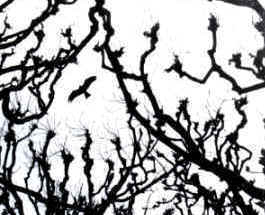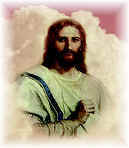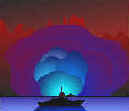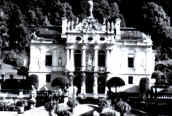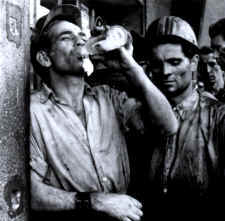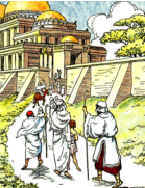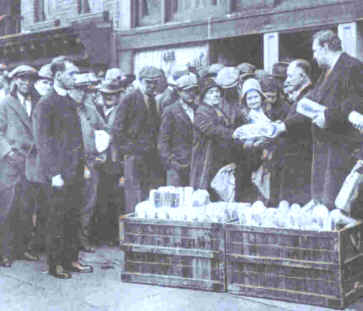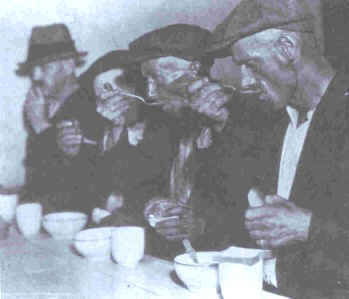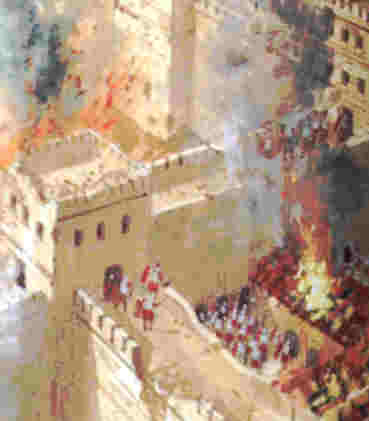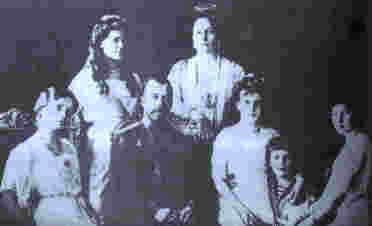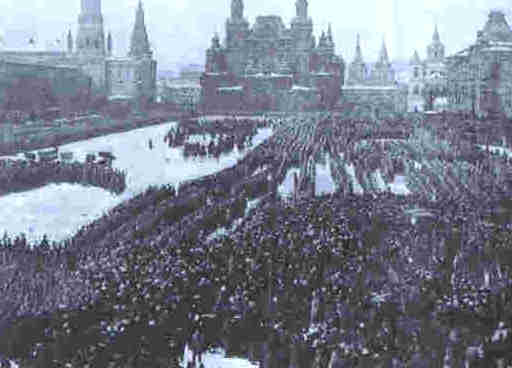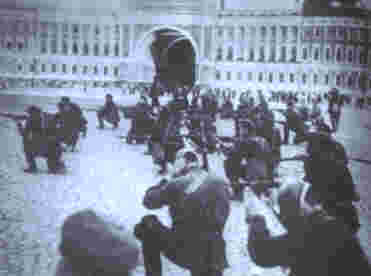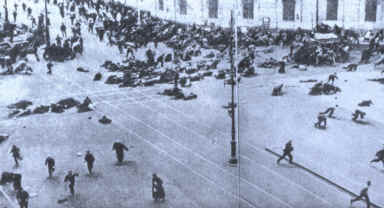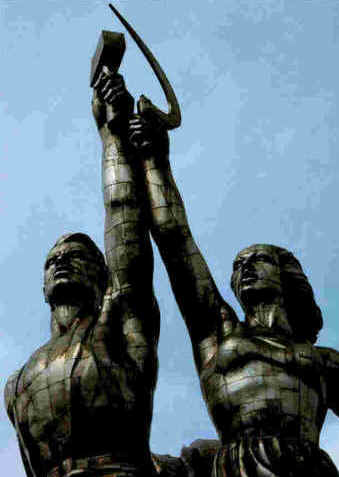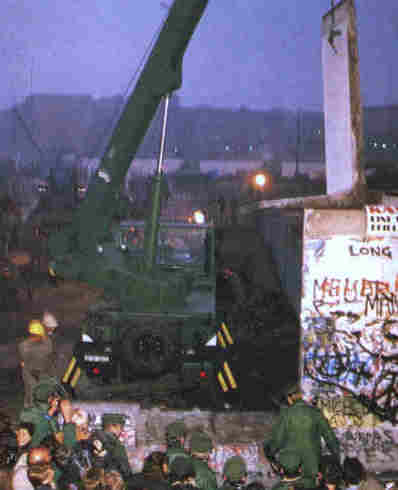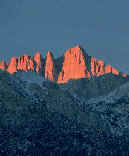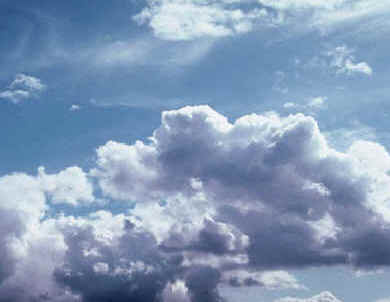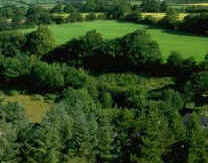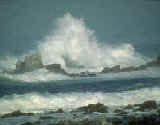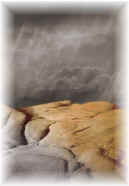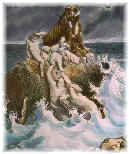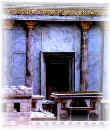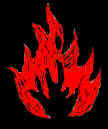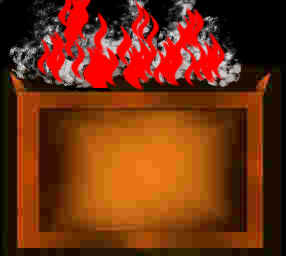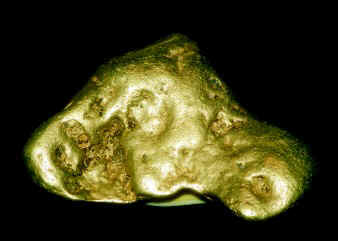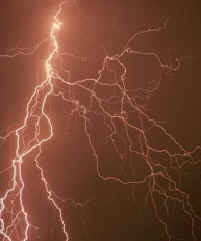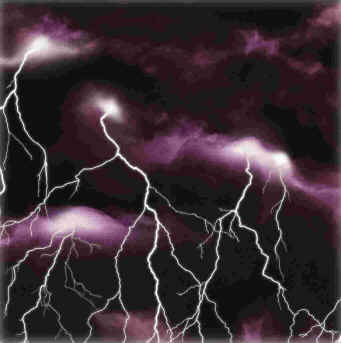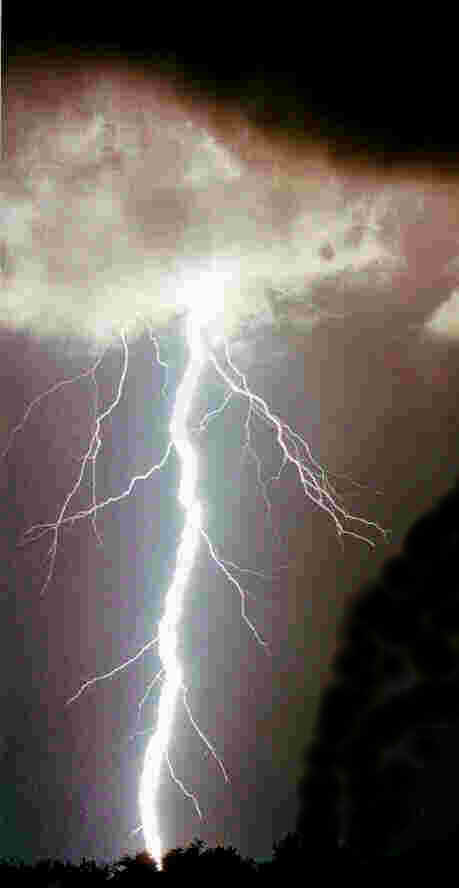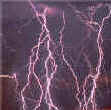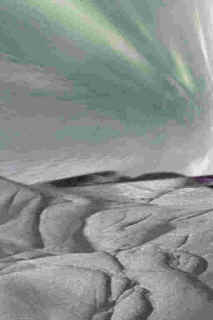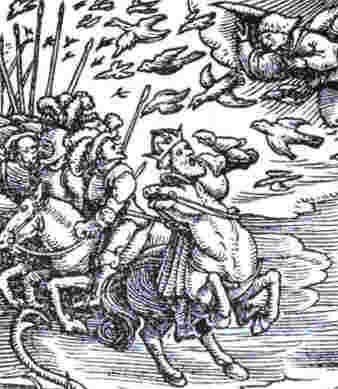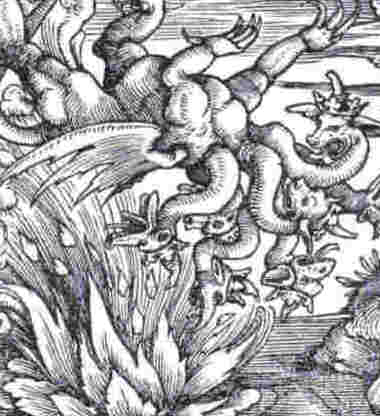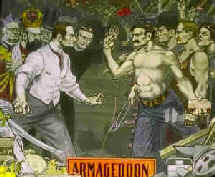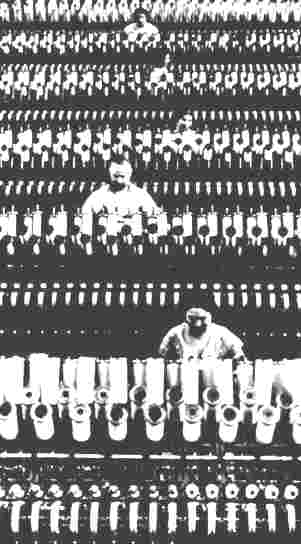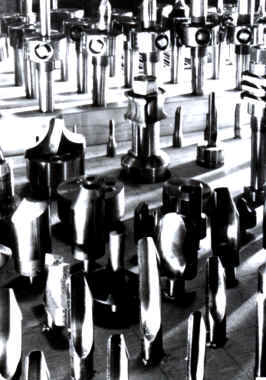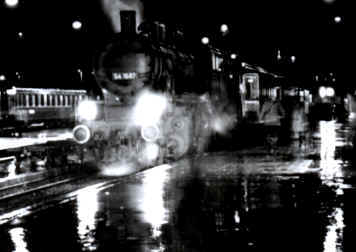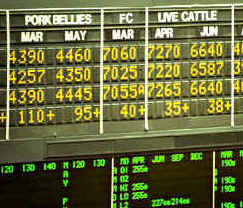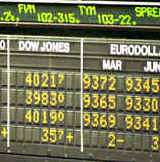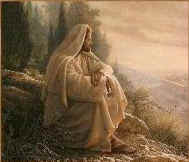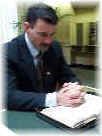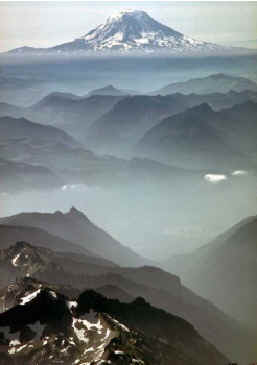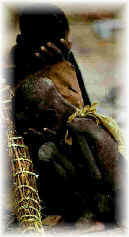|
|
|
|
--The "Day of Jehovah," the "Day of
Vengeance," the "Day of Wrath" |
Christ will be
|
The "Day of Jehovah" is the name of that period of time in which God's
kingdom, under Christ, is to be gradually "set up" in the earth, while
the kingdoms of this world are passing away and Satan's power and influence over men are
being bound. It is everywhere described as a dark day of intense trouble and distress and
perplexity upon mankind.
And what wonder that a revolution of such proportions, and necessitating such great
changes, should cause trouble. Small revolutions have caused trouble in every age; and
this, so much greater than any previous revolution, is to be a time of trouble such as
never was since there was a nation --no, nor ever shall be. It is called the "Day of Jehovah" because, though Christ, with royal title and power, will be present as Jehovah's representative, taking charge of all the affairs during this day of trouble, it is more as the General of Jehovah, subduing all things, than as the Prince of Peace, blessing all. Meantime, as false and imperfect views and systems fall, the standard of the new King will rise, and eventually he shall be recognized and owned by all as King of kings. Thus it is presented by the prophets as Jehovah's work to set up Christ's dominion:
The Ancient of days did sit, and there was brought before him one like unto a son of man, and there was given him a dominion, that all kingdoms should serve and obey him. Daniel 7:9,13,14,22,27 Added to these is Paul's statement that, when Christ shall accomplish the object of his reign,
|
||||||||
|
God has |
This period is called the "Day of Vengeance of our God," and a "Day
of Wrath." Isaiah 61:2; 63:1-4; Psalms 110:5 And yet the mind that grasps only
the idea of anger, or supposes divine malice, seriously errs. God has established certain laws, in harmony with which he operates, and those who from any cause come into conflict with these reap the penalty or wrath of their own course. God's counsel to mankind has been continually rejected, except by the few; and, as we have shown, he permitted them to have their own way and to drop him and his counsels from their hearts. Romans 1:28 He then confined his special care to Abraham and his seed, who professed to desire his way and his service. Their hardness of heart as a people, and the insincerity of their hearts toward God, not only naturally prevented them from receiving Messiah, but just as naturally prepared them for and led them into the trouble which terminated their national existence. |
||||||||
|
|
And so the light borne in the world during the Gospel age by the true Church of Christ
(the class whose names are written in heaven) has borne witness to the civilized world of
the difference between right and wrong, good and evil, and of a coming time in which the
one will be rewarded and the other punished. John 16:8-11; Acts 24:25 This would have had a wide influence upon men had they heeded the Lord's instruction, but, willful as ever, they have profited little by the advice of the Scriptures, and the trouble of the Day of the Lord will come as a consequence of the neglect. Again, it may be said to be the wrath of God inasmuch as it comes through disregard of his counsels, and as a reward of unrighteousness. Nevertheless, viewed in another light, the trouble coming upon the world is the natural or legitimate result of sin, which God foresaw, and against which his counsels would have protected them, had they been followed. |
||||||||
The world
The "voice of avarice"
|
While God's message to the Church has been, "Present your bodies a living
sacrifice" (Romans 12:1), his message to the world has been,
Few have heeded either message. Only a little flock sacrificed; and as for the world, though it nailed up the motto, "Honesty is the best policy," it has neglected in general to practice it. It heeded rather the voice of avarice--Get all you can of riches and honor and power in this world, no matter what the method by which you obtain it, and no matter who loses by your gain. In a word, the trouble of this Day of the Lord would not come, could not come, if the principles of God's law were observed to any considerable extent. That law briefly summed up is--Thou shalt love the Lord thy God with all thy heart, and thy neighbor as thyself. Matthew 22:37-39 It is because the depraved or carnal mind is opposed to this law of God, and is not subject to it, that, as a natural consequence, the trouble will come, as reaping after sowing. |
||||||||
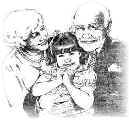 The selfish, stony heart of man |
The carnal or depraved mind, so far from loving its neighbor as itself, has always been
selfish and grasping--often leading even to violence and murder to get for self the things
possessed by others. However exercised, the selfish principle is always the same, except
as governed by circumstances of birth, education and surroundings. It has been the same in every age of the world, and will be, until, by the force of the iron rule of Messiah, not might nor greed, but love, will decide what is RIGHT, and enforce it, until all may have opportunity to learn the superior benefits of the rule of righteousness and love as compared with that of selfishness and might. Until, under the influence of the sunlight of truth and righteousness, the selfish, stony heart of man will become once more as when God pronounced it "very good"--a heart of flesh. Ezekiel 36:26 |
||||||||
How did the
Sustenance
became the principal aim |
Looking back, we can see without difficulty how the change from Godlike love and kindness
to hard selfishness came about. The circumstances tending to promote selfishness were
encountered as soon as man, through disobedience, lost the divine favor and was exiled
from his Eden home, where his every want had been bountifully supplied. As our condemned parents went forth and began the battle of life, seeking to prolong existence to its farthest limit, they were met at once with thorns and briers and thistles and sterile ground. And the contending with these produced weariness and the sweat of face which the Lord had declared. Gradually the mental and moral qualities began to dwarf from lack of exercise, while the lower qualities retained fuller scope from constant exercise. Sustenance became the principal aim and interest of life; and its cost in labor became the standard by which all other interests were estimated, and Mammon became master of men. Can we wonder that under such circumstances mankind became selfish, greedy and grasping, each striving for most--first of the necessities, and secondly of the honors and luxuries bestowed by Mammon? It is but the natural tendency of which Satan has taken great advantage. |
||||||||
The veil
Wealth brings
|
During past ages, under various influences (among others, ignorance, race prejudices, and
national pride), the great wealth of the world has generally been in the hands of the
few--the rulers--to whom the masses rendered slavish obedience as to their national
representatives, in whose wealth they felt a pride and an interest as their own
representatively. But as the time drew near in which Jehovah designed to bless the world through a Restitution at the hands of Messiah, he began to lift up the veil of ignorance and superstition, through modern facilities and inventions; and with these came the general elevation of the people and the decreasing power of earthly rulers. No longer is the wealth of the world in the hands of its kings, but chiefly among the people. Though wealth brings many evils, it also brings some blessings: the wealthy obtain better educations--but thus they are lifted intellectually above the poorer people and become more or less associated with royalty. Hence an aristocracy exists which has both money and education to back it, and to assist in its avaricious struggle to get all it can and to keep self in the front rank at any cost. |
||||||||
take advantage of educational facilities, they begin to think for themselves. |
But, as intelligence spreads, as the people take advantage of educational facilities, now
so abundant, they begin to think for themselves. With the self-esteem and selfishness in them led on by a little learning--sometimes a dangerous thing--they fancy that they see ways and means by which the interests and circumstances of all men, and especially their own, can be promoted at the cost of the fewer numbers in whose hands the wealth now lies. Many of these, doubtless, honestly believe that the conflicting interests of Mammon's worshipers (themselves on one side, and the wealthy on the other) could be easily and fairly adjusted; and no doubt they feel that were they wealthy they would be very benevolent, and quite willing to love their neighbors as themselves. But they evidently deceive themselves; for in their present condition very few indeed manifest such a spirit, and he that would not be faithful in the use of a little of this world's goods would not be faithful if he had greater riches. In fact, circumstances prove this; for some of the hardest hearted and most selfish among the wealthy are those who have risen suddenly from the humble walks of life. |
||||||||
|
On the contrary, while by no means excusing but reproving covetousness and grasping
selfishness on the part of all classes, it is but proper to notice that the provision made
for the sick and helpless and poor, in the way of asylums, hospitals, poor-houses, public
libraries, schools and various other enterprises. These, for the good and comfort of
the masses, rather than of the wealthy, are maintained mainly by taxes and donations from
the rich. These institutions almost always owe their existence to the kindhearted and benevolent among the rich, and are matters which the poorer classes have neither the time, nor generally the necessary education or interest, to bring into successful operation. |
||||||||
There has been
Capital vs. Labor
The increase of
|
Nevertheless, today sees a growing opposition between the wealthy and laboring classes--a
growing bitterness on the part of labor, and a growing feeling among the wealthy that
nothing but the strong arm of the law will protect what they believe to be their rights.
Hence, the wealthy are drawn closer to the governments; and the wage-working masses, beginning to think that laws and governments were designed to aid the wealthy and to restrain the poor, are drawn toward Communism and Anarchy, thinking that their interests would best be served thereby, and not realizing that the worst government, and the most expensive, is vastly better than no government at all. Many scriptures clearly show that this will be the character of the trouble under which present civil, social and religious systems will pass away; that this is the way in which increase of knowledge and liberty will result, because of man's imperfection, mental, moral and physical. These scriptures will be referred to in due course; but here we can only call attention to a few of the many, advising our readers meanwhile that in many of the prophecies of the Old Testament in which Egypt, Babylon and Israel figure so largely, not only was there a literal fulfillment intended, but also a secondary and larger one. Thus, for instance, the predictions regarding the fall of Babylon, etc., must be considered extravagant beyond measure, did we not recognize a symbolic and antitypical as well as a literal Babylon. The book of Revelation contains predictions recorded long after literal Babylon was in ruins, and hence evidently applicable only to symbolic Babylon; yet the close resemblance of the words of the prophets, apparently directly addressed to literal Babylon, are thus shown to belong in an especial sense to symbolic Babylon. In this larger fulfillment, Egypt represents the world; Babylon represents the nominal Church, called Christendom; while, as already shown, Israel often represents the whole world in its justified condition, as it will be--its glorious Royal Priesthood, its holy Levites and its believing and worshiping people, justified by the sacrifice of the Atonement, and brought into a condition of reconciliation with God. To Israel the blessings are promised, to Egypt the plagues, and to strong Babylon a wonderful, complete and everlasting overthrow, "as a great millstone cast into the sea" (Revelation 18:21), never to be recovered, but to be held in everlasting odium. |
||||||||
|
|||||||||
|
The Apostle James points out this day of trouble, and tells of its being the result of
differences between capital and labor. He says:
He adds that the class coming into trouble has been used to luxury, obtained largely at the cost of others, among whom were some of the righteous, and out of them, because they resisted not, the very life had been crushed. The Apostle urges the "brethren" to bear patiently whatever their part may be, looking beyond, and expecting deliverance through the Lord. This very condition of things can now be seen approaching; and in the world, among those who are awake, "men's hearts are failing them for looking after the things that are coming on the earth." All know that the constant tendency of our times is toward lower wages for labor, unless where the prices are artificially sustained or advanced by labor combinations, strikes, etc. With the present sentiment of the masses, all can see that it is but a question of time when the lowest point of endurance will be reached, and a revolt will surely result. |
||||||||
|
|||||||||
|
|
This will alarm capital, which will be
withdrawn from business and manufacturing channels and hoarded in vaults and treasuries,
to eat itself up with charges for its protection in idleness, to the great annoyance of
its owners. This in turn will certainly produce bankruptcy, financial panic and business prostration, because all business of magnitude is now conducted largely on credit. The natural result of all this will be to throw out of employment tens of thousands who are dependent on their wages for daily bread, and to fill the world with tramps and persons whose necessities will defy all law. Then it will be as described by the prophet Ezekiel 7:10-19, when the buyer need not rejoice, nor the seller mourn; for trouble will be upon the entire multitude and there will be no security of property. Then all hands will be feeble and helpless to turn aside the trouble. They will cast their silver in the streets, and their gold will be removed. Their silver and their gold will not be able to deliver them in the day of the Lord's wrath. |
||||||||
|
It should not be forgotten that though the last forty years of the existence of Israel as
a nation was a day of trouble, a "day of vengeance" upon that people,
ending in the complete overthrow of their nation. Yet, their day of wrath was but a
shadow or type of a still greater and more extensive trouble upon nominal Christendom,
even as their past history as a people during their age of favor was typical of the Gospel
age, as will be conclusively shown hereafter. All then will see why these prophecies concerning the Day of the Lord should be, and are, addressed to Israel and Jerusalem more or less directly, though the connections show clearly that all mankind is included in the complete fulfillment's. |
||||||||
The trouble involves
|
All Classes to Be Punished Take another prophetic testimony (Zephaniah 1:7-9,14-18).
[This shows not only that there will be a great overthrow of wealth and power in this time of trouble, but that those who will for the time be the instruments of heaven in breaking down present systems will also be punished for their equally unjust and unrighteous course; for the coming trouble will involve all classes, and bring distress upon all the multitude.]
This destruction will destroy many of the wealthy in the sense that they will cease to be wealthy, though doubtless it will also involve the loss of many lives of all classes. We shall not attempt to follow the prophets in their details, from various standpoints, of the trouble of that day, but shall follow briefly the thought last suggested by the prophet above, namely, the devouring of the whole earth with the FIRE of God's zeal. This prophet refers to the same fire, etc., again (Zephaniah 3:8,9), saying: |
||||||||
|
[The gathering of the peoples of all nations in common interest in opposition to present governments is growing; and the result will be a uniting of the kingdoms for common safety, so that the trouble will be upon all kingdoms, and all will fall.]
This fire of God's zeal is a symbol, and a forcible one, representing the intensity of the trouble and the destruction which will envelop the whole earth. That it is not a literal fire, as some suppose, is evident from the fact that the people remain after it, and are blessed. That the people who remain are not saints, as some would suggest, is evident from the fact that they are then turned to serve the Lord, whereas the saints are turned (converted) already.* |
||||||||
|
Other symbols |
|
||||||||
|
Throughout the Scriptures, earth, when used symbolically,
represents society; mountains represent kingdoms; heavens, the powers of
spiritual control; seas, the restless, turbulent, dissatisfied masses of the world.
Fire represents the destruction of whatever is burned--tares, dross, earth (social organization), or whatever it may be. And when brimstone is added to fire in the symbol, it intensifies the thought of destruction; for nothing is more deadly to all forms of life than the fumes of sulfur. |
||||||||
|
|||||||||
Peter’s
|
With this thought in mind, if we turn to Peter's symbolic prophecy of the Day of Wrath, we
find it in perfect accord with the above testimony of the prophets. He says:
The fact that the water was literal leads some to believe that the fire also must be literal, but this by no means follows. The temple of God once was of literal stones, but that does not set aside the fact that the Church, which is the true temple, is built up a spiritual building, a holy temple, not of earthly material. Noah's ark was literal, too, but it typified Christ and the power in him which will replenish and reorganize society. |
||||||||
|
|||||||||
The symbolic
The Prophet Malachi’s symbols
|
It should be remembered that some of the apostles were prophets as well--notably Peter, John and Paul. While as apostles they were God's mouthpieces to expound the utterances of preceding prophets for the benefit of the Church, they were also used of God as prophets to predict things to come. Prophecies which, as they become due to be fulfilled, become meat in due season for the household of faith, to dispense which, God in his own time raises up suitable servants or expounders. (See our Lord's statement of this fact– Matthew 24:45,46.) The apostles as prophets were moved upon to write things which, not being due in their day, they could but imperfectly appreciate, even as it was with the Old Testament prophets. 1 Peter 1:12,13 Though, like them, their words were specially guided and directed so that they have a depth of meaning of which they were not aware when using them. Thus emphatically the Church is ever guided and fed by God himself, whoever may be his mouthpieces or channels of communication. A realization of this must lead to greater confidence and trust in God's Word, notwithstanding the imperfections of some of his mouthpieces. The Prophet Malachi (4:1) tells of this Day of the Lord under the same symbol. He says:
Pride, and every other cause from which haughtiness and oppression could again spring forth, will be entirely consumed by the great trouble of the Day of the Lord and by the after disciplines of the Millennial age--the last of which is described in Revelation 20:9. |
||||||||
Haughtiness |
But, while pride (in all its forms sinful and detestable) is to be utterly rooted out, and all the proud and wicked are to be utterly destroyed, it does not follow that there is no hope for a reformation in this class. No, thank God: while this fire of God's just indignation will be burning, the Judge will grant opportunity for pulling some out of the consuming fire (Jude 23). Those only who refuse the aid will perish with their pride; because they have made it part of their character, and refuse to reform. |
||||||||
|
|
The same prophet gives another description of this day (Malachi 3:1-3), in which again, under the figure of fire, he shows how the Lord's children will be purified and blessed and brought nigh to him by having the dross of error destroyed:
|
||||||||
Symbolic fire
Gold, Silver and Precious Gems symbolize Divine Truths and Corresponding Character
|
Paul refers to this same fire, and this refining process affecting believers in the Day of
the Lord (1 Corinthians 3:12-15), and in such a manner as to leave it beyond all question
that the symbolic fire will destroy every error, and thus effect purification of
faith. After declaring that he refers only to those building their faith upon the only recognized foundation, Christ Jesus' finished work of redemption, he says:
Surely even the most prejudiced will concede that the fire which tries a spiritual work is not literal fire; fire is an appropriate symbol to represent the utter destruction of conditions represented here by wood, hay and stubble. This fire will be powerless to destroy the faith-and-character structure built with the gold, silver and precious stones of divine truth, and founded upon the rock of Christ's ransom-sacrifice. The Apostle shows this, saying:
--singed, scorched and alarmed. All who build on the rock foundation of Christ's ransom are sure: none that trust in his righteousness as their covering will ever be utterly confounded. But those who willfully reject him and his work, after coming to a clear, full knowledge thereof, will be subject to the second death. Hebrews 6:4-8; 10:26-31 |
||||||||
A storm
|
In yet another way is this trouble of the Day of the Lord symbolically described. The
Apostle shows (Hebrews 12:26-29) that the inauguration of the Law Covenant at Sinai was
typical of the introduction of the New Covenant to the world at the opening of the
Millennial age, or reign of Christ's kingdom. He says that in the type God's voice shook the literal earth, but now he hath promised, saying,
Thus we see this apostle uses a storm to symbolize the trouble of this Day of the Lord, which he and others elsewhere refer to under the symbol of fire. The same events are here noted that are described under the fire symbol, namely, the sweeping away of all falsities, both from believers and from the world--errors regarding God's plan and character and Word, and also errors as to social and civil affairs in the world. It will be good indeed for all to be rid of these fabrications, which came to man largely through his own depraved desires, as well as by the cunning craftiness of Satan, the wily foe of righteousness; but it will be at great cost to all concerned that they will be swept away. It will be a terribly hot fire, a fearful storm, a dark night of trouble, which will precede the glorious brightness of that Kingdom of Righteousness which can never be shaken, that Millennial day in which the Sun of Righteousness will shine forth in splendor and power, blessing and healing the sick and dying but redeemed world. Compare Malachi 4:2 and Matthew 13:43. |
||||||||
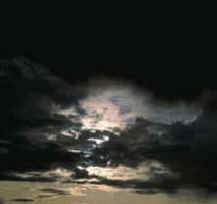 A dark night
The Psalmist
David vividly describes this Day
|
David, the prophet through whose Psalms
God was pleased to foretell so much concerning our Lord at his first advent, gives some
vivid descriptions of this Day of Trouble by which his glorious reign will be introduced. He uses these various symbols--fire, storm and darkness--alternately and interchangeably, in his descriptions. Thus, for instance, he says (Psalms 50:3):
And in the same Psalm, verses 6-10, the same story is restated in other symbols:
Then, viewing the results of that time of trouble from beyond it, he adds:
The "new earth" or new order and arrangement of society will exalt God and his law, as over and controlling all. |
||||||||
|
Another testimony in proof of the fact that the Day of the Lord will be a great day of
trouble and of destruction to every form of evil (yet not a time of literal burning
of the earth) is furnished in the last symbolic prophecy of the Bible. Referring to this time when the Lord will take his great power to reign, the storm and fire are thus described–
|
||||||||
|
We cannot here digress to examine these symbols– "beast," "false
prophet," "image," "lake of fire," "horse," etc.,
etc. For this the reader is referred to a succeeding volume. Now we would have you notice that the great symbolic BATTLE, and the harvesting of the vine of the earth here described as closing the present age and opening up the Millennial age (Revelation 20:1-3), are but other symbols covering the same great and troublous events elsewhere symbolically called fire, storm, shaking, etc. In connection with the battle and winepress figures of Revelation, note the striking harmony of Joel 2:9-16 and Isaiah 13:1-11, in describing the same events by similar figures. The variety of symbolic figures used helps us to appreciate more fully all the features of that great and notable Day of the Lord. |
||||||||
Pride
|
The Present Situation We here leave the prophetic statements regarding that day, to mark more particularly the present aspect of affairs in the world, as we now see them shaping themselves for the rapidly approaching conflict--a conflict which, when its terrible climax is reached, must necessarily be a short one, else the race would be exterminated. The two rival parties to this battle are already visible. Wealth, arrogance and pride are on one side, and widely-prevailing poverty, ignorance, bigotry and a keen sense of injustice are on the other. Both, impelled by selfish motives, are now organizing their forces all over the civilized world. With our eyes anointed with truth, wherever we look we can see that the sea and the waves are already roaring and lashing and foaming out against the mountains, as represented in the threats and attempts of anarchists and discontents whose numbers are constantly increasing. We can see, too, that the friction between the various factions or elements of society is rapidly getting to the point described by the prophets, when the earth (society) will be on fire, and the elements will melt and disintegrate with the mutually generated heat. |
||||||||
The two rival
parties -- The wealthy |
It is of course difficult for people, on whichever side of this controversy they may be,
to see contrary to their own interests, habits and education. The wealthy feel that they have a right to more than their proportional share of this world's goods; a right to purchase labor and every commodity as low as they can; a right to the fruit of their efforts. They feel that they have a right to use their intelligence so to run their business as to make profit for themselves and to increase their hoarded wealth, no matter who else may be compelled by force of circumstances to drag through life with few of its comforts, even if with all of its necessities. They reason thus: It is the inevitable; the law of supply and demand must govern; rich and poor have always been in the world; and if the wealth were evenly divided in the morning, some would, through dissipation or improvidence, be poor before night, while others, more careful and prudent, would be rich. Besides, they will argue with effect, Can it be expected that men of greater brain power will undertake vast enterprises, employing thousands of men, with the risks of large losses, unless there be hopes of gain and some advantage? |
||||||||
the laborer
All
Both labor
|
The artisan and the laborer, on the contrary, will say: We see that while labor enjoys many advantages today above any other day, while it is better paid, and can therefore procure greater comforts, yet it is in this enjoying only its right, from which it has long been debarred to some extent. Labor is thus properly deriving a share of the advantages of the inventions, discoveries, increasing knowledge, etc., of our time. We recognize labor as honorable, and that, when accompanied with good sense, education, honesty and principle, it is as honorable, and has as many rights, as any profession. And, on the contrary, we esteem idleness a discredit and disgrace to all men, whatever their talent or occupation in life. All, to be valued and appreciated, should be useful to others in some respect. But though realizing our present improvement and advancement, intellectually, socially and financially, we realize this to be more the result of circumstances than of human design on the part of either ourselves or our employers. We see our improved condition, and that of all men, to be the result of the great increase of intelligence, invention, etc., of the past fifty years particularly. These came up so rapidly that labor as well as capital got a lift from the tidal wave, and was carried to a higher level; and if we could see a prospect that the flood tide would continue to rise, and to benefit all, we would feel satisfied; but we are anxious and restless now because we see that this is not the case. We see that the flood tide is beginning to turn, and that whereas many have been lifted high in wealth by it, and are firmly and securely fixed upon the shore of ease, luxury and opulence, yet the masses are not thus settled and secured, but are in danger of being carried as low as ever, or lower, by the undercurrent of the now ebbing tide. Hence it is that we are disposed to grasp hold of something to insure our present state and our further advancement before it is too late. |
||||||||
|
The organization
|
To state the matter in other words, we (artisans and laborers) see that while all mankind
has largely shared the blessings of the day, yet those who by reason of greater talent for
business, or by inheritance, or by fraud and dishonesty, have become possessors of tens of
thousands and millions of dollars, have not only this advantage over all others,
but, aided by the mechanical inventions, etc., they are in a position to continue the
ratio of their increase in wealth, in proportion to the decrease in the wage-workers'
salaries. We see that unless we take some steps toward the protection of the increasing number of artisans against the increasing power of monopoly, combined with labor-saving machinery, etc., the cold-blooded law of supply and demand will swallow us up completely. It is against this impending disaster, rather than against present conditions, that we organize and seek protective arrangements. Each day adds largely to our numbers by natural increase and by immigration; and each day adds to the labor-saving machinery. Each day, therefore, increases the number seeking employment and decreases the demand for their service. The natural law of supply and demand, therefore, if permitted to go on uninterruptedly, will soon bring labor back where it was a century ago, and leave all the advantages of our day in the hands of capital. It is this that we seek to avert. |
||||||||
One invention has followed another very rapidly. |
This ultimate tendency of many real blessings to work injury, unless restrained by wise and equitable laws, was long since seen. But the rapidity with which one invention has followed another, and the consequent increased demand for labor in providing this labor-saving machinery, has been so great that the ultimate result has been delayed. Instead, the world has had a "boom"--an inflation of values, wages, wealth, credits (debts) and ideas--from which the reaction is now commencing gradually to take place. | ||||||||
Supply outruns
as much as many did formerly |
In the last few years there have been produced in vast quantities agricultural implements
of every description which enable one man to accomplish as much as five could formerly. This has a two-fold effect: first, three times as many acres are worked, giving employment to three out of the five laborers, thus setting two adrift to compete for other labor; secondly, the three who remain can, by the use of the machinery, produce as great a crop as fifteen would have done without it. The same or greater changes are wrought in other departments by similar agencies; for instance, in iron and steel making. Its growth has been so enormous that the number of employees has greatly increased, notwithstanding the fact that machinery has enabled one man at present to accomplish about as much as twelve did formerly. One of the results will be that very shortly the capacity of these extensive works will more than meet the present enormous demands. The demands, instead of continuing to increase, will probably decrease; for the world is fast being supplied with railroads beyond present needs. The yearly repairs on these could probably be supplied by less than one-half the present number of establishments. |
||||||||
Over-production and |
Thus we are brought in contact with the peculiar condition in which there is an
over-production, causing idleness occasionally to both capital and labor, while at the
same time some lack the employment which would enable them to procure necessities and
luxuries and thus in a measure cure the over-production. And the tendency toward both over-production and lack of employment is on the increase, and calls for a remedy of some kind which society's physicians are seeking, but of which the patient will not make use. |
||||||||
"Boom" |
While, therefore (continues the wage-worker), we realize that as the supply begins to
exceed the demand, competition is greatly reducing the profits of capital and
machinery. Throughout the world, competition is distressing the rich by curtailing
their profits, and in some cases causing them actual loss instead of profit. Yet we believe that the class which benefited most by the "boom" and inflation should suffer most in the reaction, rather than that the masses should suffer from it. To this end, and for these reasons, wage-workers are moving to obtain the following results--by legislation if possible, or by force and lawlessness in countries where, for any cause, the voice of the masses is not heard, and the interests of the masses are not conserved: |
||||||||
Labor demands
The great
|
It is proposed that the hours of labor be shortened in proportion to the skill or severity
of the labor, without a reduction of wages, in order thus to employ a greater number of
persons without increasing the products, and thus to equalize the coming over-production
by providing a larger number with the means of purchasing. It is proposed to fix and limit the rate of interest on money at much less than the present rates, and thus compel a leniency of the lenders toward the borrowers or poorer class, or else an idleness or rusting of their capital. It is proposed that railroads shall either be the property of the people, operated by their servants, government officials, or that legislation shall restrict their liberties, charges, etc., and compel their operation in such a manner as to serve the public better.
As it is, railroads built during a period of inflated values, instead of curtailing their capital to conform to the general shrinkage of values experienced in every other department of trade, have multiplied their originally large capital stocks two or three times (commonly called watering their stocks), without real value being added. Thus it comes that great railroad systems are endeavoring to pay interest and dividends upon stocks and bonded debts which on an average are four times as great as these railroads would actually cost today new. As a consequence the public suffers. Farmers are charged heavily for freights, and sometimes find it profitable to burn their grain for fuel; and thus the cost of food to the people is greater without being to the farmer's advantage. It is proposed to remedy this matter, so that railroads shall pay to their stockholders about four per cent on their present actual value, and not four to eight per cent, on three or four times their present value, as many of them now do, by preventing competition through pooling arrangements. |
||||||||
Management proposes
|
We well know, says the artisan, that in the eyes of those who hold watered railroad
stocks, and other stocks, this reduction of profits on their invested capital will seem
terrible, and will come like drawing teeth. They will feel that their rights
(?) to use their franchises granted by the people, to squeeze from them immense profits,
based upon fictitious valuations, are being grievously outraged, and that they will resist
it all they know how. But we feel that they should be thankful that the public is so lenient, and that they are not required to make restitution of millions of dollars already thus obtained. We feel that the time has come for the masses of the people to share more evenly the blessings of this day of blessings. To do this it is necessary so to legislate that all greedy corporations, fat with money and power derived from the public, shall be restrained, and compelled by law to serve the public at reasonable rates. In no other way can these blessings of Providence be secured to the masses. Hence, while great corporations, representing capital, are to a large extent a blessing and a benefit, we are seeing daily that they have passed the point of benefit and are becoming masters of the people, and if unchecked will soon reduce wage-workers to penury and slavery. Corporations, composed of numbers of people all more or less wealthy, are rapidly coming to occupy the same relation to the general public of America that the Lords of Great Britain and all Europe occupy toward the masses there, only that the corporations are more powerful. |
||||||||
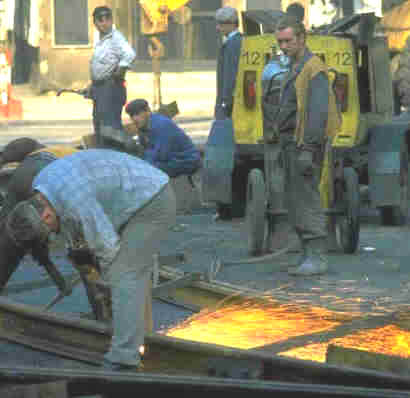 |
To accomplish our ends, continue the wage-workers, we need organization. We must have the
cooperation of the masses or we can never accomplish anything against such immense power
and influence. And though we are organized into unions, etc., it must not be understood
that our aim is anarchy or injustice toward any class. We, the masses of the people, simply desire to protect our own rights, and those of our children, by putting reasonable bounds upon those whose wealth and power might otherwise crush us– which wealth and power, properly used and limited, may be a more general blessing to all. In a word, they conclude, we would enforce the golden rule--
|
||||||||
Wage
Workers organize for reform |
Selfish Men Will Not Happy would it be for all concerned if such moderate and reasonable means would succeed; if the rich would rest with their present acquirements and cooperate with the great mass of the people in the general and permanent improvement of the condition of all classes; if the wage-workers would content themselves with reasonable demands; if the golden rule of love and justice could thus be put in practice. But men in their present condition will not observe this rule without compulsion. Though there be some among the artisans of the world who would be thus moderate and just in their ideas, the majority are not so, but will be extreme, unjust and arrogant in their ideas and demands, beyond all reason. Each concession on the part of capitalists will but add to such demands and ideas; and all having experience know that the arrogance and rule of the ignorant poor are doubly severe. And so among those of wealth--some are fully in sympathy with the laboring classes, and would be glad to act out their sympathy by making such arrangements as would gradually effect the needed reforms; but they are greatly in the minority and wholly powerless in the operating of corporations and to a great extent in their private business. If they be merchants or manufacturers, they cannot shorten the hours of labor or increase the wages of their employees; for competitors would then undersell them, and financial disaster to themselves, their creditors and their employees would follow. |
||||||||
What causes
|
Thus we see the natural cause of the great trouble of this "Day of Jehovah." Selfishness,
and blindness to all except their own interests, will control the majority on both sides
of the question. Wage-workers will organize and unify their interests, but selfishness will destroy the union; and each, being actuated mainly by that principle, will scheme and conspire in that direction. The majority, ignorant and arrogant, will gain control, and the better class will be powerless to hold in check that which their intelligence organized. Capitalists will become convinced that the more they yield the more will be demanded, and will soon determine to resist all demands. Insurrection will result; and in the general alarm and distrust capital will be withdrawn from public and private enterprises, and business depression and financial panic will follow. Thousands of men thrown out of employment in this way will finally become desperate. Then law and order will be swept away--the mountains will be swallowed up in that stormy sea. |
||||||||
The melting |
Thus the social earth will melt, and the governmental heavens (church and state) will pass
away; and all the proud, and all who do wickedly, will be as stubble. Then the mighty men
will weep bitterly, the rich will howl, and fear and distress will be upon all the
multitude. Even now, wise, far-seeing men find their hearts failing them as they look forward to those things coming upon the world, even as our Lord predicted. Luke 21:26 The Scriptures show us that in this general rupture the nominal church (including all denominations) will be gradually drawn more and more to the side of the governments and the wealthy, will lose much of its influence over the people, and will finally fall with the governments. Thus the heavens [ecclesiastical rule], being on fire, will pass away with a great hissing. |
||||||||
A government
which will enforce the principles |
All this trouble will but prepare the world to realize that though men may plan and
arrange ever so well and wisely, all their plans will prove futile as long as ignorance
and selfishness are in the saddle and have the control. It will convince all that the only feasible way of correcting the difficulty is by the setting up of a strong and righteous government, which will subdue all classes, and enforce principles of righteousness, until gradually the stony-heartedness of men will, under favorable influences, give place to the original image of God. And this is just what God has promised to accomplish for all, by and through the Millennial Reign of Christ, which Jehovah introduces by the chastisements and lessons of this day of trouble. Ezekiel 11:19; 36:25,36; Jeremiah 31:29-34; Zephaniah 3:9; Psalms 46:8-10 |
||||||||
Those who |
Though this day of trouble comes as a natural and unavoidable result of man's fallen,
selfish condition, and was fully foreseen and declared by the Lord, who foresaw that his
laws and instructions would be disregarded by all but the few until experience and
compulsion force obedience, yet all who realize the state of things coming should set
themselves and their affairs in order accordingly. Thus we say to all the meek--the humble of the world, as well as the body of Christ:
None will entirely escape the trouble, but those seeking righteousness and rejoicing in meekness will have many advantages over others. Their manner of life, their habits of thought and action, as well as their sympathies for the right, which will enable them to grasp the situation of affairs, and also to appreciate the Bible account of this trouble and its outcome, will all conspire to make them suffer less than others--especially from harassing fears and forebodings. |
||||||||
|
|||||||||
|
Society weakens with each new spasm of trouble. |
The trend of events in this Day of the Lord will be very
deceptive to those not Scripturally informed. It will come suddenly, as fire consuming
chaff (Zephaniah 2:2), in comparison to the long ages past and their slow operation; but
not suddenly as a flash of lightning from a clear sky, as some erroneously expect who
anticipate that all things written concerning the Day of the Lord will be fulfilled in a
twenty-four hour day. It will come as "a thief in the night," in the sense that its approach will be stealthy and unobserved by the world in general. The trouble of this day will be in spasms. It will be a series of convulsions more frequent and severe as the day draws on, until the final one. The Apostle so indicates when he says--"as travail upon a woman." 1 Thessalonians 5:2,3 The relief will come only with the birth of the NEW ORDER of things--a new heavens (the spiritual control of Christ) and a new earth (reorganized society) wherein dwelleth righteousness (2 Peter 3:10,13)--in which justice and love, instead of power and selfishness, will be the law. |
||||||||
Labor pangs |
Each time these labor pangs of the new era come upon the present body politic, her
strength and courage will be found less, and the pains severer. All that society's
physicians (political economists) can do for her relief will be to help, and wisely direct
the course of the inevitable birth--to prepare gradually the way for the event. They
cannot avert it if they would; for God has decreed that it shall come to pass. Many of society's physicians will, however, be totally ignorant of the real ailment and of the necessities and urgency of the case. These will undertake repressive measures; and as each paroxysm of trouble passes away, they will take advantage of it to fortify the resistive appliances, and will thereby increase the anguish. While they will not long delay the birth, their malpractice will hasten the death of their patient; for the old order of things will die in the labor of bringing forth the new. |
||||||||
|
To lay aside the forcible figure suggested by the Apostle, and speak plainly: The efforts
of the masses for deliverance from the grasp of Capital and machinery will be immature;
plans and arrangements will be incomplete and insufficient, as time after time they
attempt to force their way and burst the bands and limits of "supply and demand"
which are growing too small for them. Each unsuccessful attempt will increase the confidence of Capital in its ability to keep the new order of things within its present limits, until at length the present restraining power of organizations and governments will reach its extreme limit. The cord of social organism will snap asunder, law and order will be gone, and widespread anarchy will bring all that the prophets have foretold of the trouble "such as was not since there was a nation"--and, thank God for the assurance added--"nor ever shall be" afterward. |
|||||||||
Emancipation
|
The deliverance of Israel from Egypt and from the plagues which came upon the Egyptians
seems to illustrate the coming emancipation of the world, at the hands of the greater than
Moses, whom he typified. It will be a deliverance from Satan and every agency he has
devised for man's bondage to sin and error.
And as the plagues upon Egypt had a hardening effect as soon as removed, so the temporary
relief from the pains of this Day of the Lord will tend to harden some, and they will say
to the poor, as did the Egyptians to Israel, "Ye are idle," and therefore
dissatisfied! and will probably, like them, attempt to increase the burden. But in the end such will wish, as did Pharaoh in the midnight of his last plague, that they had dealt more leniently and wisely long ago. Exodus 12:30-33 To mark further the similarity, call to mind that the troubles of this Day of the Lord are called "seven vials of wrath," or "seven last plagues," and that it is not until the last of these that the great earthquake (revolution) occurs, in which every mountain (kingdom) will disappear. Revelation 16:17-20 |
||||||||
The Day of Trouble |
Another thought with reference to this Day of Trouble is that it has come just in due
time--God's due time. In the next volume of this work, evidence is adduced from the
testimony of the Law and the Prophets of the Old Testament, as well as from Jesus and the
apostolic prophets of the New Testament, which shows clearly and unmistakably that this
Day of Trouble is located chronologically in the beginning of the glorious Millennial
reign of Messiah. It is this necessary preparation for the coming work of restitution in the Millennial age that precipitates the trouble. |
||||||||
Society
of thy face shalt thou eat bread, till thou return unto the ground." Genesis 3:19 |
During the six thousand years interim of evil, and until the appointed time for the
establishment of the righteous and powerful government of Christ, it would have been a
positive injury to fallen men had they been afforded much idle time, through an earlier
development of present labor-saving machinery, or otherwise. Experience has given rise to the proverb that "Idleness is the mother of vice," thus approving the wisdom of God's decree,
Like all God's arrangements, this is benevolent and wise, and for the ultimate good of his creatures. The trouble of the Day of the Lord, which we already see gathering, confirms the wisdom of God's arrangement; for, as we have seen, it comes about as the result of over-production by labor-saving machinery, and an inability on the part of the various elements of society to adjust themselves to the new circumstances, because of selfishness on the part of each. |
||||||||
Had the |
An unanswerable argument, proving that this is God's due time for the introduction of the
new order of things, is that he is lifting the veil of ignorance and gradually letting in
the light of intelligence and invention upon mankind, just as foretold, when foretold, and
with the results predicted. Daniel 12:4,1 Had the knowledge come sooner, the trouble would have come sooner; and though society might have reorganized after its storm and melting, it would have been not a new earth [social arrangement] wherein righteousness would prevail and dwell, but a new earth or arrangement in which sin and vice would have much more abounded than now. The equitable division of the benefits of labor-saving machinery would in time have brought shorter and shorter hours of labor; and thus, released from the original safeguard, fallen man, with his perverted tastes, would not have used his liberty and time for mental, moral and physical improvement, but, as the history of the past proves, the tendency would have been toward licentiousness and vice. |
||||||||
|
The partial lifting of the veil now prepares thousands of conveniences for mankind,
and thus furnishes, from the outstart of the age of restitution, time for education and
moral and physical development, as well as for preparation for the feeding and clothing of
the companies who will from time to time be awakened from the tomb. And furthermore, it locates the time of trouble just where it will be of benefit to mankind, in that it will give them the lesson of their own inability to govern themselves, just at the Millennial dawn, when, by the Lord's appointment, he who redeemed all is to begin to bless them with the strong rule of the iron rod, and with full knowledge and assistance whereby they may be restored to original perfection and everlasting life. |
|||||||||
"He that dwelleth in the secret place of the Most High
shall abide under the shadow of the Almighty."
|
Duty and Privilege of the Saints An important question arises regarding the duty of the saints during this trouble, and their proper attitude toward the two opposing classes now coming into prominence. That some of the saints will still be in the flesh during at least part of this burning time seems possible. Their position in it, however, will differ from that of others, not so much in that they will be miraculously preserved (though it is distinctly promised that their bread and water shall be sure), but in the fact that, being instructed from God's Word, they will not feel the same anxiety and hopeless dread that will overspread the world. They will recognize the trouble
as the preparation, according to God's plan, for blessing the whole world, and they will
be cheered and comforted through it all. This is forcibly stated in Psalms 91; Thus comforted and blessed by the divine assurance, the first duty of the saints is to let the world see that in the midst of all the prevailing trouble and discontent, and even while they share the trouble and suffer under it, they are hopeful, cheerful and always rejoicing in view of the glorious outcome foretold in God's Word. |
||||||||
Dissatisfaction |
The Apostle has written that
and though this has always been true, it will have double force in this Day of the Lord, when discontent is the chief ailment among all worldly classes. To these the saints should be a notable exception. There never was a time when dissatisfaction was so widespread; and yet there never was a time when men enjoyed so many favors and blessings. Wherever we look, whether into the palaces of the rich, replete with conveniences and splendors of which Solomon in all his glory knew almost nothing, or whether we look into the comfortable home of the thrifty and temperate wage-worker, with its evidences of taste, comfort, art and luxury, we see that in every way the present exceeds in bountiful supply every other period since the creation, many-fold. Yet the people are unhappy and discontented. |
||||||||
Provide things decent
The saints |
The fact is that the desires of a selfish, depraved heart know no bounds. Selfishness has
so taken possession of all, that, as we look out, we see the whole world madly pushing and
driving and clutching after wealth. A few only being successful, the remainder are envious
and soured because they are not the fortunate ones, and all are discontented and
miserable--more so than in any former time. But the saint should take no part in that struggle. His consecration vow was that he would strive and grasp and run for a higher, a heavenly prize, and hence he is weaned from earthly ambitions, and labors not for earthly things, except to provide things decent and needful; for he is giving heed to the course and example of the Master and the apostles. |
||||||||
|
Therefore they have contentment with their godliness, not because they have no
ambition, but because their ambition is turned heavenward and absorbed in the effort to
lay up treasure in heaven and to be rich toward God; in view of which, and of their
knowledge of God's plans revealed in his Word, they are content with whatever of an
earthly sort God may provide. These can joyfully sing: "Content, whatever lot I see, |
||||||||
| But alas! not all of God's children occupy this position. Many have fallen into the discontent prevalent in the world, and are robbing themselves of the enjoyments of life because they have left the Lord's footsteps and are casting their lot and taking their portion with the world --seeking earthly things whether attaining them or not, sharing the world's discontent, and failing to realize the contentment and peace which the world can neither give nor take away. | |||||||||
|
|
We urge the saints, therefore, to abandon the strife of greed and vainglory and its
discontent, and to strive for the higher riches and the peace they do afford. We would
remind them of the Apostle's words:
|
||||||||
"Let your |
If the example of the saints is thus one of contentment and joyful anticipation, and a
cheerful submission to present trials in sure hope of the good time coming, such living
examples alone are valuable lessons for the world. And in addition to the example, the
counsel of the saints to those about them should be in harmony with their faith. It should be of the nature of ointment and healing balm. Advantage should be taken of circumstances to point the world to the good time coming, to preach to them the coming Kingdom of God, and to show the real cause of present troubles, and the only remedy. Luke 3:14; Hebrews 13:5; Philippians 4:11 |
||||||||
|
Heralds
|
Christians Should Counsel Contentment The poor world groans, not only under its real, but also under its fancied ills, and especially under the discontent of selfishness, pride and ambitions which fret and worry men because they cannot fully satisfy them. Hence, while we can see both sides of the question, let us counsel those willing to hear to contentment with what they have, and to patient waiting until God in his due time and way brings to them the many blessings which his love and wisdom have provided. By probing and inflaming either real or fancied wounds and wrongs, we would do injury to those we should be helping and blessing, thus spreading their discontent, and hence their trouble. But by fulfilling our mission, preaching the good tidings of the ransom given for ALL, and the consequent blessings to come to ALL, we shall be true heralds of the kingdom --its ambassadors of peace. Thus it is written,
|
||||||||
|
at hand is the only remedy and hope. The eminent Kingdom... |
The troubles of this "Day of Jehovah" will give opportunity for preaching
the good tidings of coming good, such as is seldom afforded, and blessed are they who will
follow the footsteps of the Master, and be the good Samaritans binding up the wounds and
pouring in the oil and wine of comfort and cheer The assurance given such is that their labor is not in vain; for when the judgments of the Lord are in the earth, the inhabitants of the world will learn righteousness. Isaiah 26:9 The sympathy of the Lord's children, like that of their heavenly Father, must be largely in harmony with the groaning creation, striving for any deliverance from bondage. Although they should, like him, remember and sympathize with those of the opposing classes whose desires are to be just and generous, but whose efforts are beset and hindered, not only by the weaknesses of their fallen nature, but also by their surroundings in life, and their association with and dependence upon others. But the Lord's children should have no sympathy with the arrogant, insatiate desires and endeavors of any class. Their utterances should be calm and moderate, and always for peace where principle is not at stake. They should remember that this is the Lord's battle, and that so far as politics or social questions are concerned, they have no real solution other than that predicted in the Word of God. The duty of the consecrated, therefore, is first of all to see that they are not in the way of Jehovah's chariot, and then to "stand still and see the salvation of God," in the sense of realizing that it is no part of their work to share in the struggle, but that it is the Lord's doing, through other agencies. Regardless of all such things, they should press along the line of their own mission, proclaiming the heavenly kingdom at hand as the only remedy for all classes, and their only hope. |
||||||||
|
|||||||||
|
||||

